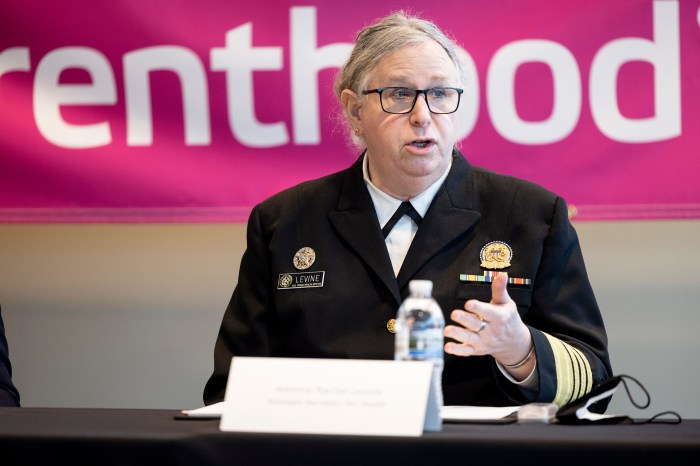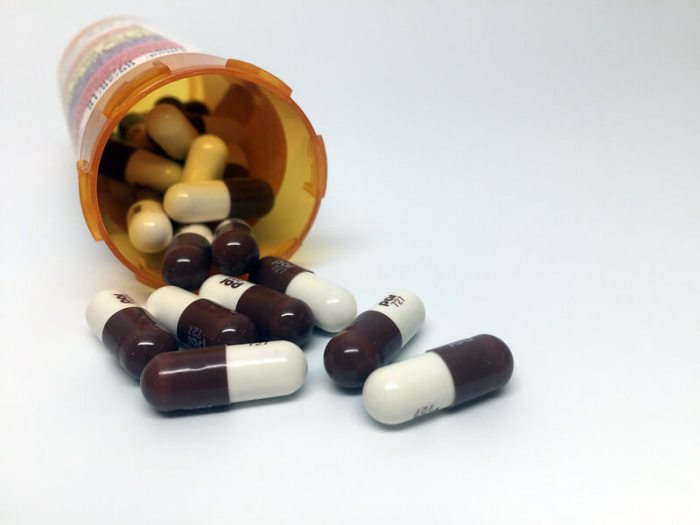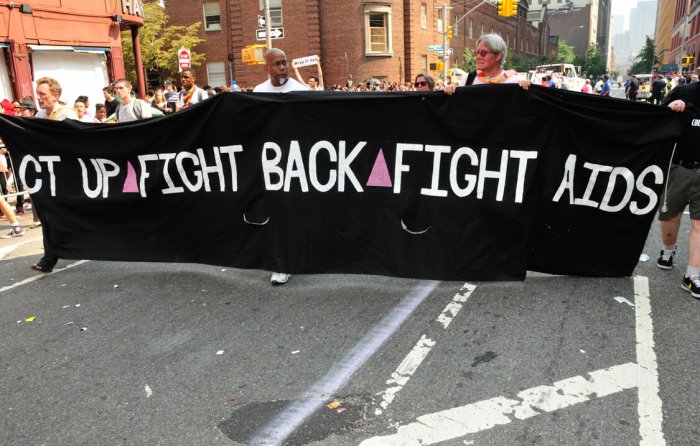(ILLUSTRATION: MICHAEL SHIREY/ GAY CITY NEWS)
BY PAUL SCHINDLER | “Labor plans to ‘sick’ gays on Christine.”
So read the headline of an August 8 “exclusive” in the New York Post detailing a plan the newspaper said had been hatched at a meeting in Washington in July. According to the account, prominent LGBT leaders in New York were prepared to “publicly buck Quinn’s” run for mayor next year if the out lesbian City Council speaker failed to allow a vote on a measure guaranteeing workers at companies with five or more employees between five and nine paid sick days each year.
The Post did not identify its sources nor did it name any of the prospective Quinn antagonists, and Gay City News has uncovered no evidence of anything quite so dramatic afoot on the paid sick leave front. That’s not to say that there are not important LGBT leaders pressing to make paid sick leave a reality in New York City nor that the arguments in favor of the bill are not based, in part, on issues of specific concern to the queer community.
In fact, in recent weeks, public health and social justice advocates –– ranging from Dr. Marjorie Hill, the chief executive officer of Gay Men’s Health Crisis (GMHC), to Queers for Economic Justice (Q4EC) –– have come forward with full-throated endorsements of the measure, emphasizing its public health benefits for people living with HIV and its impact on lower-wage LGBT workers.
Among those Speaker Christine Quinn is hearing from on paid sick leave is Dr. Marjorie Hill, CEO of GMHC. | GAY CITY NEWS / DONNA ACETO
Their activism comes as Quinn faces mounting pressure from both sides of the debate on an issue she has resisted for more than two years. In 2010, the speaker, while expressing sympathy for the legislation’s goals, said she worried about its impact on small businesses during the current recession. The bill has 36 co-sponsors, more than enough to override an expected veto by Mayor Michael Bloomberg, but without Quinn’s okay, the measure will not get a vote.
As recently as last month, the speaker, in a statement to the New York Times, reiterated her concern that the economy remained too weak to adopt the paid sick leave measure. Her office did not respond to a request for comment for this story. Upper West Side Councilwoman Gale Brewer, paid sick leave’s chief sponsor, told Gay City News she met with Quinn on August 14 and discussed the economy. “She has kept her commitment to keep talking,” Brewer said. “I can’t say we will have a bill in a month, but we are talking.”
Like other advocates, Brewer said the success of paid sick leave laws elsewhere — from Connecticut to San Francisco — has strengthened their case.
With just 15 months left before the next mayoral election, both sides in the battle seem to sense that a final showdown is approaching. In the past ten days, a letter signed by more than 175 business owners urged Quinn to continue resisting the bill. Their opposition, echoed in strongly-worded editorials in the Post and the Daily News, emphasized the burden the measure imposes on small businesses.
Writing in the Post, Councilman James Gennaro of Queens pointed to a 2010 survey by Ernst & Young indicating that as much as 90 percent of the city’s workforce already enjoys paid sick leave. That finding, he said, demonstrated that only those businesses least able to handle the cost fail to offer the benefit.
Paid sick leave advocates strongly dispute that statistic, estimating that somewhere between one million and a million and a half workers in New York lack any paid sick leave. Data in a 2012 report from the Community Service Society, an anti-poverty group, suggests the picture might be worse. Half of the city workers it surveyed said their employers offered no such benefit –– suggesting there are as many as 1.8 million without paid sick leave.
Tony Juliano is the general manager of XES Lounge, a gay bar in Chelsea, the sort of small business paid sick leave opponents have made the face of their efforts. In a Daily News op ed, Juliano warned “our close-knit business is being threatened by a well-intentioned but terribly damaging paid sick leave bill.” He said the business had no interest in sick employees showing up to work, but explained that it helps its workers swap their shifts in such situations.
Advocates for paid sick leave emphasize that without it, employees who are ill often feel compelled to go to work anyway, but Juliano argued that if XES were required to pay sick leave, it would stop allowing such swaps. That, he said, could also have the effect of inducing a sick employee to show up –– in order not to lose the tips that could have been earned if the lost time had instead been traded with another worker.
Juliano, also the president of the Greenwich Village-Chelsea Chamber of Commerce, said XES would be forced to end its employee health insurance program in the face of sick leave costs. The Council bill, he wrote, was “a surefire way to ruin my business.”
In their editorials, the Daily News and the Post were similarly dire in assessing the Council measure. The Post called it “a sick job-killer.” The Daily News warned that its advocates were trying to “bully” Quinn into okaying a “misbegotten… job-killing measure.”
Advocates acknowledge that small businesses are less likely than larger ones to offer paid sick leave, but note that many large corporations, including fast-food franchises and retail chains, also fail to grant such a benefit. “Those large businesses are point-guarding the opposition,” one advocate of paid sick leave told Gay City News.
If opponents of paid sick leave are stepping up their efforts, that is likely in response to aggressive organizing on the part of the bill’s proponents, including major labor unions, the Working Families Party, civil rights leaders, public health professionals, immigrant and economic justice advocates, and women’s groups.
Dan Cantor, executive director of the Working Families Party, showed his side is also prepared to roll out tough talk. In a statement to Gay City News, he said, “For lobbyists and CEOs who have paid sick days, paid vacation, paid personal days, health insurance plans, and retirement plans to begrudge low-wage workers a few paid sick days to take care of their families' health is just wrong. A vote on paid sick days would be a great day for hundreds of thousands of New Yorkers.”
Last month, the Times –– which, unlike its rival dailies, supports the measure on its editorial page –– reported that about 200 prominent women, led by feminist leader Gloria Steinem, a Quinn supporter, had written the speaker urging her to change her position on the issue. Steinem was joined by influential lesbians, including GMHC’s Hill, Randi Weingarten, the president of the American Federation of Teachers, and the actor Cynthia Nixon.
“It actually is not that much of a stretch,” Hill told Gay City News of her group’s support for the bill. “We are a public health organization and so obviously committed to structures and policies that will promote public health. And we are a social justice organization committed to equity for all.”
She said its view was shared by many “sister organizations in HIV/ AIDS,” though GMHC, as the city’s largest group working on the epidemic, would take the lead in the public policy debate.
Other LGBT leaders who have spoken out on behalf of the measure include Brad Hoylman, who is running to succeed Tom Duane in the State Senate seat he is vacating at the end of the year, the Jim Owles Liberal Democratic Club, Liz Margolies, executive director of the National LGBT Cancer Network, and Melissa Goodman, the senior litigation and policy counsel for LGBT and reproductive rights at the New York Civil Liberties Union.
Margolies said that the evidence she found most compelling on the sick leave question was recent findings from the federal Centers for Disease Control and Prevention showing that workers lacking such a benefit are statistically less likely to undergo routine screenings for breast, colorectal, and cervical cancer. “It’s my job to help remove any obstacle to screening and getting care,” she said.
Quinn’s three out gay and lesbian colleagues on the Council also support the paid sick leave bill.
Rosie Mendez, who represents the Lower East Side, noted that the measure began working its way through the Council at about the same time the living wage bill –– which guarantees a minimum pay and benefit level for employees of companies receiving city subsidies and other public incentives –– was also under discussion. After a concerted drive by labor and some compromises, Quinn threw her support behind that measure.
“I thought this was going to get done, too,” said Mendez, who predicted the delay on putting paid sick leave into law might prove only temporary. “I am hopeful,” she said. Mendez added the measure is “good economic policy,” in good times or bad.
Jackson Heights Councilman Daniel Dromm also predicted success, explaining he is most concerned about low-income and immigrant workers in his district.
Jimmy Van Bramer, a councilman from Sunnyside, pushed back on the tone of the Post’s recent story on LGBT support for paid sick leave.
“I don’t think it’s about sicking anyone on anyone,” he told Gay City News. “Some people want to sensationalize the issue, pitting gays against gays. I think the coalition is enlisting support from all communities in the city, including the LGBT, and that’s just smart. That’s good organizing. It’s about showing the full breadth of your support.”
Matthew McMorrow, co-president of Brooklyn’s Lambda Independent Democrats, made a similar point. While noting the club is not formally part of any coalition working on the bill, he wrote in an email, “As a progressive Democratic club, LID supports the paid sick leave bill currently before the City Council, and we hope that the speaker will give the Council the opportunity to vote on the bill.” He added, “As LGBT advocates, we disagree with the tone of the recent headline that described the political strategy as sicking the gay community on Quinn over this issue.”



































